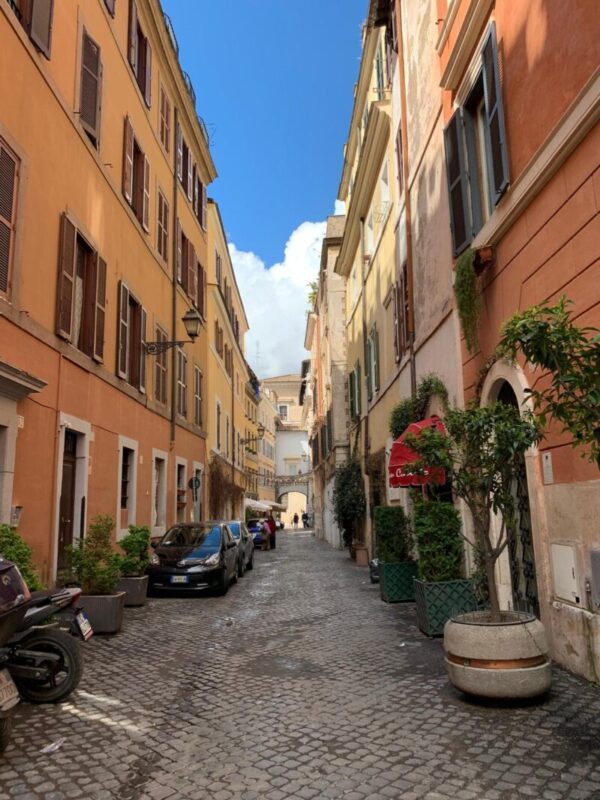
Cosa comprende l’affitto? (What’s included in the rent?)
What’s covered by the rent generally depends on the type of contract. A tourist contract
(contratto ad uso turistico) will generally include the condo fees, utilities, heating, water and
so on, whereas longer term contracts probably won’t – and these can add a considerable
amount to your monthly expenditure.
Qual è la tipologia di contratto? (What type of contract is it?)
3+2, 4+4, transitorio, turistico… They each come with their own specific legally binding
terms and conditions. For more information, check out my blog post here
Naturalmente sarà registrato? Posso usarlo come domicilio per la residenza? (It’ll be
registered, of course? Can I use the address to apply for residency?)
With long term contracts, especially if you go through an agency, there’s normally no
question that the contract will be registered – which is a legal requirement – and that you can
then use that address as your domicilio when you apply for residency. With a contratto
transitorio, however, things are less clear-cut. While legally, landlords must still register the
contract and can’t stop you from using the address for residency purposes, in practice they
might not want to allow this. What this means is they might simply refuse to rent to you.
Alternatively, they might agree to register the contract at a certain monthly rent, but then ask
you to pay an extra amount off the books. (Needless to say, this is illegal, although they are
the ones breaking the law, not you.)
Issues like this are generally avoided with rentals through an agency: it’s a trade-off between
having to pay yet more money (the agency’s commission) on what’s already an expensive
business, and having the peace of mind that everything is being done in an above-board
manner.
Quant’è il deposito di sicurezza? E la vostra provvigione? (How much is the security
deposit? And your commission?)
Unlike in many other countries, agencies in Italy charge both landlord and tenant for their
services. For rentals, their commission is generally the equivalent of somewhere between 1
month’s rent and 15% of the annual rent, + 22% VAT in both cases. The length of the contract
usually has no bearing on the commission you’ll need to pay.
According to law, the maximum deposit you can be required to pay is 3 months’ rent.
However, in practice there are various ways that landlords try to get round this: for example,
you might be asked to take out a bank guarantee, or if you can’t provide one, to pay 6
months’ or even a full year’s rent in advance.
Il riscaldamento è autonomo o centralizzato? (Is the heating independent or centralised?)
Condominiums often have a centralised boiler which supplies heating to all apartments in the
building (except to any whose owner has opted out). This means you don’t get to decide
when the heating comes on and goes off – either over the year or day to day. Over the year,
it’s decided each year by a municipal bylaw: in Rome the dates are usually from early
November to early April. From day to day, it’s agreed by the households in each
condominium, but in any case within the times and number of hours permitted by law.
It’s now common to have a meter hanging from each radiator for an exact itemisation of your
share of the condominium’s heating bill. Otherwise, you’ll pay a share proportionate to the
size of your apartment.
For independent heating, you still need to abide by the local bylaws in relation to the
permitted dates and number of hours, but are otherwise free to control your heating as you
please.
Whether your heating is independent or centralised, the maximum legally permitted winter
room temperature for private homes is 19 °C (66 °F), with a tolerance of +2 °C. For
apartments with air conditioning, there’s also a minimum permitted summer temperature: this
stands at 27 °C (80.5 °F), with a tolerance of -2 °C. (In other words, you can’t heat your
home above 21 °C (70 °F) in winter, or cool it below 25 °C (77 °F) in summer.)
In practice, there seems to be no attempt to enforce the maximum and minimum temperatures
in private homes.
Who pays if the boiler breaks?
Whether it’s centralised or independent, Italian law is clear that routine maintenance and
repairs are payable by the tenant. If the boiler (or any of its parts) have to be replaced,
however, that’s on the landlord.
Bonus question:
Sono permessi animali domestici? (Are pets allowed?)
If you’re an animal lover, it’s probably unthinkable to leave your beloved pooch or puss
behind. Italian law recognises the importance of pets, and it’s forbidden for the regulations of
any condominium to outlaw them altogether (although restrictions are permitted in relation to
their size or number).
It’s another matter when it comes to renting, however: landlords are perfectly entitled to say
“no pets”, and many do. If you’ve set your heart on an apartment with such a ban, you could
try offering a higher security deposit, or to buy your own furniture, as a sweetener. If you
have any references from other landlords reporting that your pets didn’t cause any damage,
that might help, too!
These key phrases will help you ask the right questions and avoid costly misunderstandings
when viewing a property in Italy. A bit of preparation goes a long way – and showing that
you’ve done your homework can make a great impression, too. In bocca al lupo! (good luck)